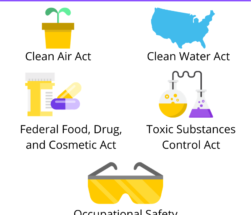In today’s rapidly evolving technological landscape, energy efficiency has become a pressing concern for businesses across industries. With growing concerns about climate change and a global shift towards sustainable practices, companies are recognizing the importance of minimizing their energy consumption. Energy efficiency not only helps to reduce the carbon footprint but also leads to significant cost savings in the long run. In this article, we will explore the various ways businesses can promote energy efficiency in the workplace through innovative technologies and employee engagement.
The Role of Technology
Advancements in technology have paved the way for efficient energy management systems that can transform workplaces into eco-friendly environments. Smart thermostats, for example, can automatically adjust the temperature based on occupancy or time of day, ensuring optimal comfort while minimizing energy wastage. Additionally, LED lighting solutions have gained popularity due to their energy-saving capabilities, durability, and versatility. These lighting systems can be integrated with smart controls to further optimize energy usage.
Utilizing Renewable Energy Sources
Switching to renewable energy sources has become a viable option for businesses looking to enhance their sustainability efforts. Solar panels, for instance, can be installed on the rooftops of office buildings to harness the power of the sun and generate electricity. Investing in these solar energy systems not only leads to reduced energy bills but also positions the company as an environmentally conscious entity. Similarly, wind turbines and geothermal systems provide alternative sources of energy that can significantly contribute to reducing the carbon footprint.
Employee Engagement
Encouraging employees to actively participate in energy efficiency initiatives is crucial for creating a sustainable workplace. By establishing energy-conscious habits and promoting awareness, businesses can have a substantial impact on energy consumption. Educating employees about the importance of energy efficiency, conducting training sessions, and rewarding energy-saving behavior can go a long way in fostering a culture of sustainability. For example, setting up energy-saving competitions or providing incentives for reducing energy usage can motivate employees to actively monitor and reduce their energy footprint.
Data Monitoring and Analytics
Implementing data monitoring and analytics systems can provide businesses with valuable insights into their energy usage patterns. Detailed analysis of energy consumption can identify areas of excessive or inefficient energy usage, allowing for targeted improvements. Smart meters and sensors can be installed to monitor energy usage in real-time, providing immediate feedback and enabling businesses to make data-driven decisions to optimize energy efficiency. These systems can also generate reports and trends that help track the progress of energy-saving initiatives and set future goals.
Embracing Virtualization and Cloud Computing
Virtualization and cloud computing technologies offer numerous benefits, including reduced energy consumption. By consolidating physical servers into virtual ones, businesses can significantly decrease their energy requirements for data centers. Additionally, cloud computing allows for the outsourcing of computing resources, leading to decreased energy consumption on individual workstations. Virtual meetings and remote working arrangements can further contribute to energy efficiency by minimizing the need for business travel and reducing carbon emissions.
Conclusion
Energy efficiency in the workplace is not only an ethical responsibility but also a strategic opportunity for businesses. By implementing innovative technologies, utilizing renewable energy sources, promoting employee engagement, monitoring energy usage, and embracing virtualization, businesses can make significant strides towards a greener and more sustainable future. Embracing energy efficiency not only benefits the environment but also positively impacts the bottom line, with reduced energy costs contributing to increased profitability. Therefore, investing in energy-efficient practices is a win-win situation for businesses and the planet.









